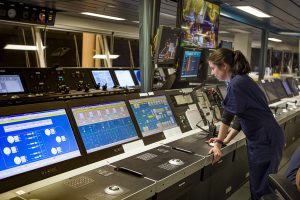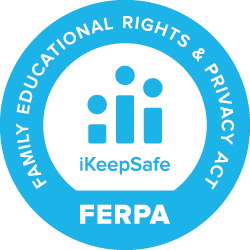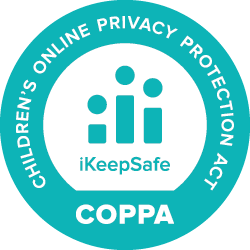Live Event: December 14, 2017 at 1:00pm Eastern (US)
Ally Cedeno is a Ship Navigator for the offshore drilling contractor Transocean, where she navigates a drillship and keeps it stationary during drilling operations. Her personal mission is to spread awareness of the “at-sea” job opportunities for women through her organization “Women Offshore.”
About Ally
What are your favorite hobbies or activities you do for fun?
Blogging, Photography, Skiing, Sailing, and Walking My Dogs
Do you play any sports or do any athletic activities?
Skiing and Sailing

What is your favorite non-science book, magazine, or blog?
WomenOffshore.org and HumansatSea.com
What’s your most frequently played song?
How Far I’ll Go by Alessa Cara (Theme Song from Moana)
Who do you look up to and admire?
Women who work on the water
Highest degree attained
Bachelor of Science
Future degree(s) planning on pursuing, if any
Master of Business Administration
Schools attended
United States Merchant Marine Academy (USMMA)
Favorite classes/coursework in elementary school, middle school, high school, college
Navigation Courses at USMMA
What educational accomplishments are you most proud of?
I have a Captain’s License for working on ships of 1600 tons and a Chief Mate’s License for working on ships of any size.
What kinds of challenges did you overcome during your education?
My parent’s divorce set me back early in my childhood education. I learned to read later than my classmates and had a difficult time socializing. With time and great teachers who understood my homelife, I was able to excel in school.
Employer
Transocean
Official title
Senior Dynamic Positioning Operator
“Layma’s” title
Ship Navigator
Years in this organization/position
4+ years
What does your organization do?
Offshore Drilling Contractor
What is your role in the organization?
I navigate a 780-foot long drillship and keep it stationary over a wellhead for drilling operations.
Describe your work environment
The navigation bridge of a drillship is the control center, where I monitor various computer systems and manage traffic coming to and from the vessel. The computer systems include the dynamic positioning system that controls the ship’s thrusters to stay on station, GPS, underwater acoustic system, fire and gas safety system, ballast system, watertight door controls, fans and dampers status, and an overview of the ship’s engines.
What tools and/or techniques do you use in your job?
Chart work is an important aspect of my job. When we move locations, I plot our GPS position on our charts with dividers and triangles.I can also use a sextant utilizing the stars and planets to find my ship’s’ position. Additionally, I use a bearing circle to take an azimuth of the sun to compute the error in our compass.
Describe a typical day in your job
A typical day lasts 12 hours and starts with a meeting to learn about the various jobs that will be going on that day. I then head to the navigation bridge to find out how the last 12 hour shift went before taking over the watch.
Throughout my 12-hour day, I monitor my vessel’s position to ensure she is right over the top of the wellhead. I observe GPS and underwater acoustic data to verify our position, while trending the vessel’s movement and communicating with nearby vessels. My ship is pretty impressive; at 780-feet long, she is capable of staying within a couple feet of a setpoint.
Weather observations are an important part of my job as well. I monitor weather in the area by reading reports, following up on weather buoy information, and tuning our weather radar that picks up on nearby turbulence.
I also observe traffic in the area and communicate with any nearby ships. This is important not just for collision avoidance, but also for knowing who’s around in case we need assistance. For example, if we needed to abandon our ship or fight a fire, we would call on any nearby vessels to assist us.
Describe an atypical (but notable) day in your job
The ship I’m assigned to is currently making way from a shipyard in South Korea to the US. At the end of this month, I will join my ship in Cape Town, South Africa to navigate it across the Atlantic Ocean to the Gulf of Mexico.
How is the work you do important to society?
Oil plays an important part in our society. It’s not just the gas in our cars. From plastics, nylon, wax candles, cosmetics, to vitamins, petroleum is in everything. The drillships I work on spud in the wellhead and create the well so that you at home can utilize the above-listed products and more.
What accomplishments are you most proud of in your current role?
I am proud to be a part of a team that just completed building the newest drillship in our fleet. She’s an outstanding ship with a great, hardworking crew.
What projects or goals are you currently pursuing?
My lifelong goal is to reduce the gender gap on the water by spreading awareness of the job opportunities at sea for women. Sadly, women make up less than 4% of the offshore workforce even though there are many STEM jobs women are already working on land that they could pursue on the water. If more women knew about these opportunities in offshore energy, they would be out here with me. I created an organization called Women Offshore, where women share their stories at WomenOffshore.org about working on the water.
What are the biggest challenges you face in your work?
There have always been a few men around me who don’t believe women belong at sea. Early on in my career, I felt that it was my duty to prove these guys wrong. Now that I have 10 years in, I ignore their antics, choosing instead to empower the people around me.
I would say the most challenging aspect of working offshore for both men and women is being gone from home for weeks at a time. Every now and then, I feel homesick, missing my husband and family. I remind myself that there are many benefits that make up for being away, including equal time off and great pay.
What is the most exciting, most amazing, or scariest thing that has happened to you during your work?
The most amazing part about working on the water is observing marine life. One of my very first days working offshore in the Gulf of Mexico, I saw a giant thresher shark that breached numerous times. The shark’s whole body was coming out of the air, even the very large tail that it has. Some of my other favorite moments involve whales that seemed just as curious about us as we were about them. Seeing marine life around us is just another great part of this dynamic and exciting career.
Previous employers and positions that have lead to your current role
I started out as a cadet at the US Merchant Marine Academy where I joined a ship that circumnavigated the globe. After I graduated, I worked on cruise ships all over the world, including Antarctica, Africa, Mediterranean, and Northern Europe.
In 2010, I made my way to the Gulf of Mexico to work in offshore energy and earn my Dynamic Positioning Certificate on board a dive support vessel owned at the time by Global Industries. This was my introduction to the offshore energy industry. We worked with Remote Operating Vehicles and divers to construct pipelines and platforms in oilfields in the Gulf of Mexico, Bay of Campeche, and Guyana.
Best job you’ve ever had and why?
The best job I’ve had is my current one, which included time working in a shipyard in South Korea overseeing the safety and navigation equipment installation on my current ship. I really enjoyed spending time in Korea, especially seeing how ships are built in a shipyard.
What were you like as a kid?
As a kid, I loved being on and around the water. I enjoyed learning how to sail and was curious about marine life in the Pacific Northwest.
What were your favorite books/shows/movies when you were a kid?
Free Willy was my favorite movie as a kid. I also enjoyed reading mystery books, including Nancy Drew and the Boxcar Children. I would stay up late with a book, reading with a flashlight under the covers.
What did you think you were going to be when you grew up at age 12? At age 15? At age 18?
If you had asked me at the age of 12 or 15 what I was going to be, I would have said a doctor. I even applied to the University of Washington with the intention of going to medical school.
When did you know you wanted to pursue your current career, and what drove you towards it?
When I was researching colleges in high school, I found out about USMMA and instantly was excited. I visited the campus, talked to the students, and learned about career opportunities I could have afterward. I was hooked, so I headed off to USMMA when I graduated high school. Now 10 years after graduating from USMMA, I am enjoying my offshore career and happy with the decision I made as an 18 year old.
Who inspired you on this path?
My Dad was in the US Coast Guard and is the best ship handler I know. His skills and the knowledge he passed down to me inspired me to work offshore.
If you weren’t doing what you’re doing now, what other careers might you have pursued?
I really enjoyed my time working on cruise ships and I might still be there if I hadn’t desired to obtain more certificates, including a dynamic positioning certificate, which can only be attained while working on a ship that has that kind of system.
What advice would you give a student interested in pursuing your career?
Go for it! A career at sea means every day will be an adventure for you. This is a challenging environment that will make every day exciting. There are a lot of great benefits as well. Many companies offer equal time off and great pay! When you make it out here, take every opportunity you can to upgrade your license and gain certificates to qualify for any promotions that come available.
Additionally, working long-term offshore is not for everyone either. If you’re thinking of coming offshore for a few years of experience, that’s great too! The people you’ll meet and the experience you’ll gain in operations will empower your career when you’re ready to go shoreside.
What advice would you give students in general?
Give the subjects that you think you may be “bad at” some extra time. When I was in high school, I had a tough time with calculus. My dad encouraged me to spend extra time working on calculus problems until they made more sense to me. When I arrived in college, calculus was one of my best and favorite subjects to study!
What are some interesting places you’ve traveled?
I’ve been lucky to work all over the world during my career. Some of my favorite places have been Antarctica, the Seychelles, and Ireland.


